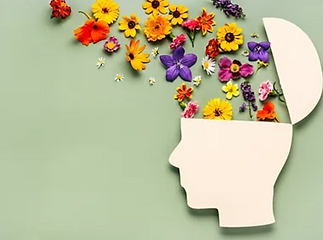
Mental Health
Mental health refers to a person's emotional, psychological, and social well-being. It encompasses how individuals think, feel, and behave, as well as how they cope with stress, relate to others, and make choices. Good mental health is vital for overall well-being and quality of life, enabling individuals to function effectively in daily life, cope with challenges, and contribute to their communities.
Here are some key aspects of mental health:
-
Emotional well-being: This involves recognizing and managing emotions in a healthy way, including experiencing a range of emotions, such as happiness, sadness, anger, and fear, and being able to cope with them effectively.
-
Psychological well-being: It refers to having a positive sense of self-esteem, self-acceptance, and resilience, as well as the ability to adapt to change, solve problems, and make choices that contribute to personal growth and fulfillment.
-
Social well-being: This involves having supportive relationships, a sense of belonging, and the ability to communicate and interact with others in a positive and meaningful way. Social connections play a crucial role in mental health by providing emotional support, reducing feelings of isolation, and promoting overall well-being.
-
Cognitive functioning: It includes the ability to think clearly, concentrate, and make decisions, as well as to learn new things and solve problems effectively. Cognitive health is essential for maintaining mental sharpness and functioning optimally in daily life.
Maintaining good mental health involves various factors, including engaging in healthy lifestyle habits (such as regular exercise, balanced nutrition, adequate sleep, and stress management), seeking support from friends, family, or mental health professionals when needed, practicing self-care, and engaging in activities that bring joy and fulfillment.
It's essential to address mental health issues promptly and seek help if experiencing symptoms of mental illness, such as persistent sadness, anxiety, irritability, changes in appetite or sleep patterns, difficulty concentrating, or thoughts of self-harm or suicide. Mental health treatment may include therapy, medication, support groups, and other interventions tailored to individual needs.
Contact
Think we missed something, or have something to add? Email us, and we'll be sure to get back to you!